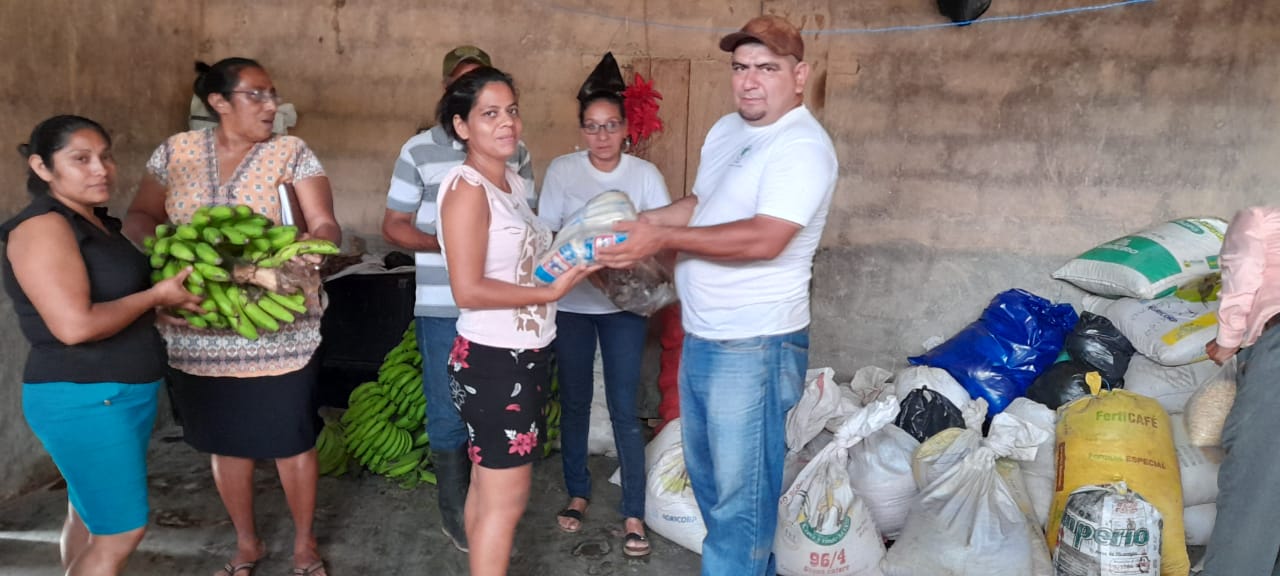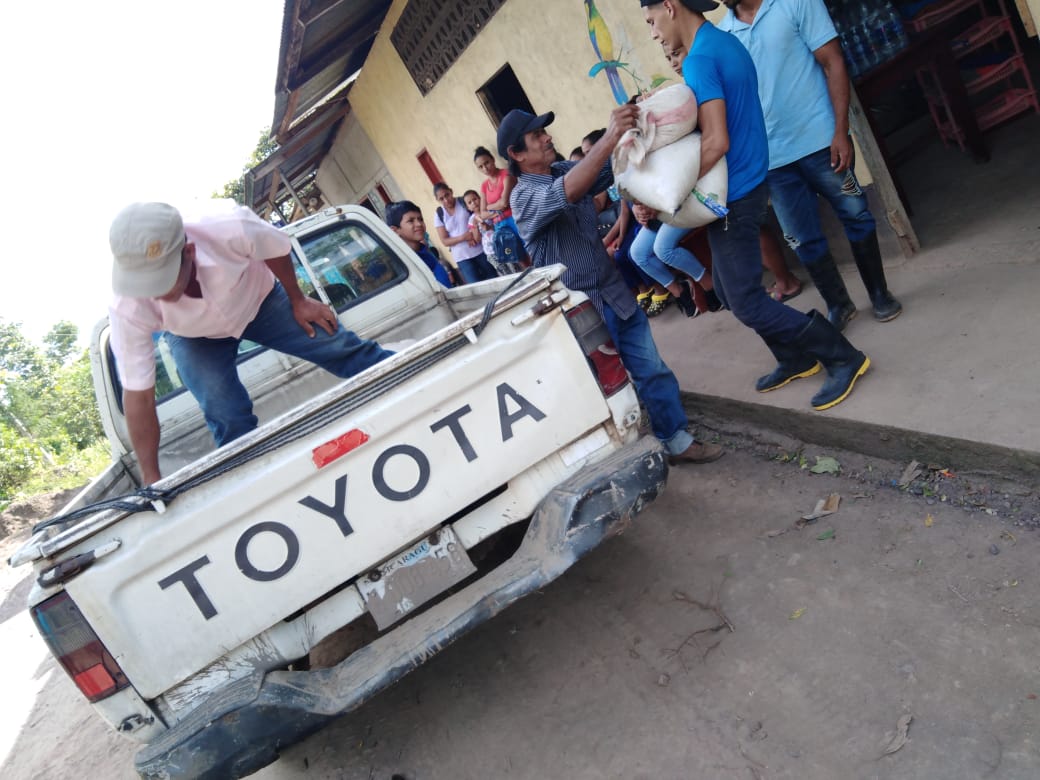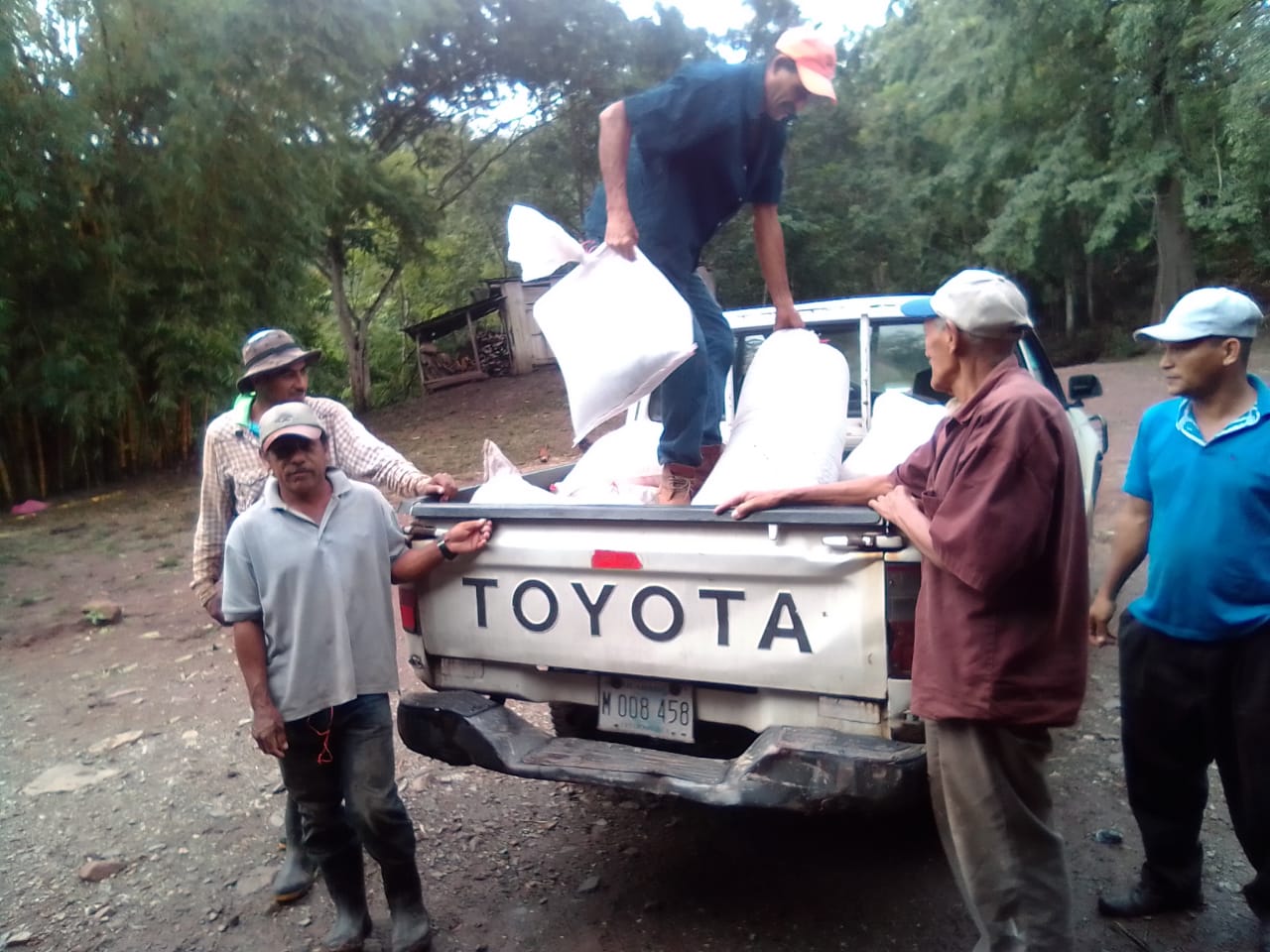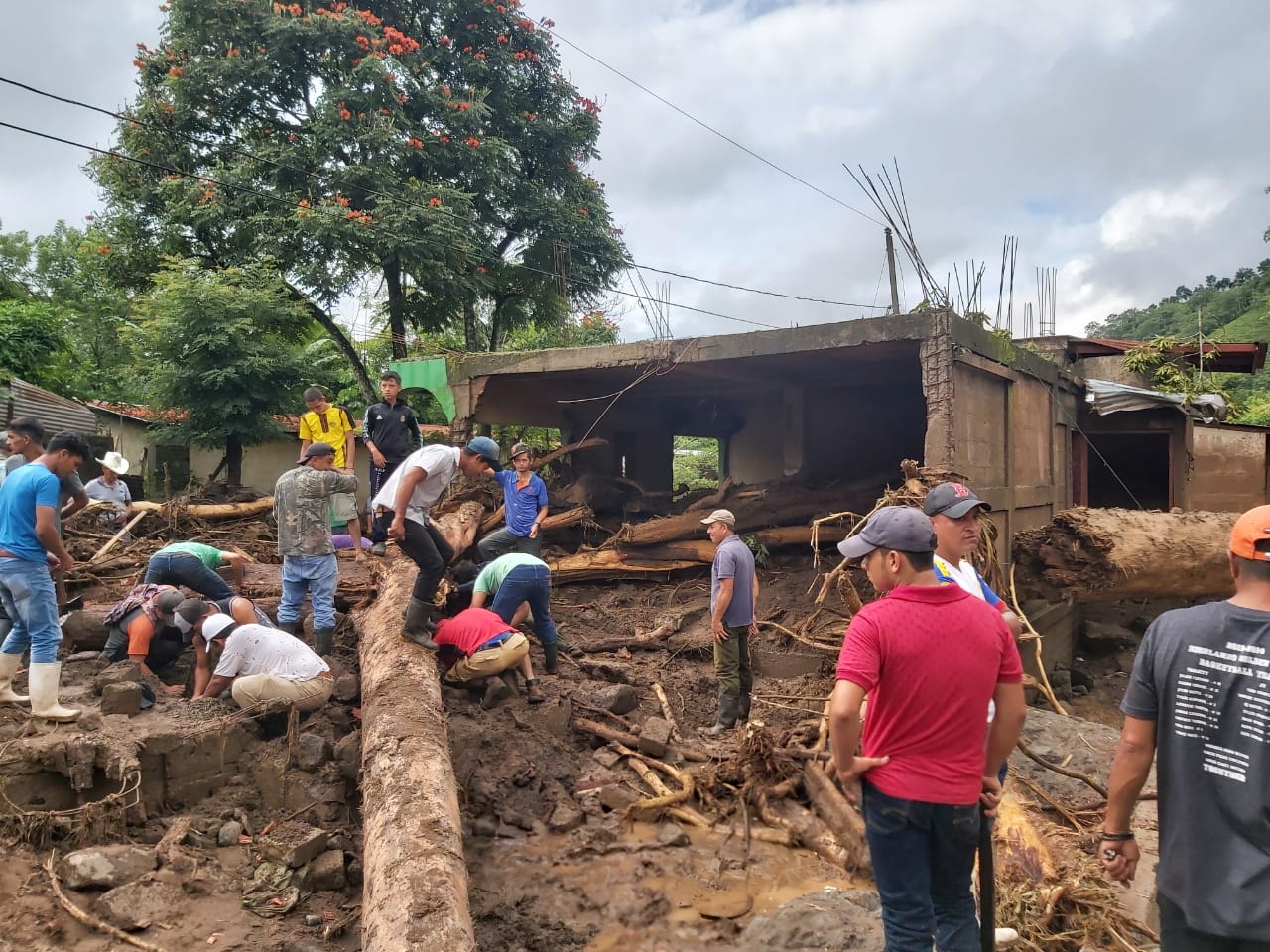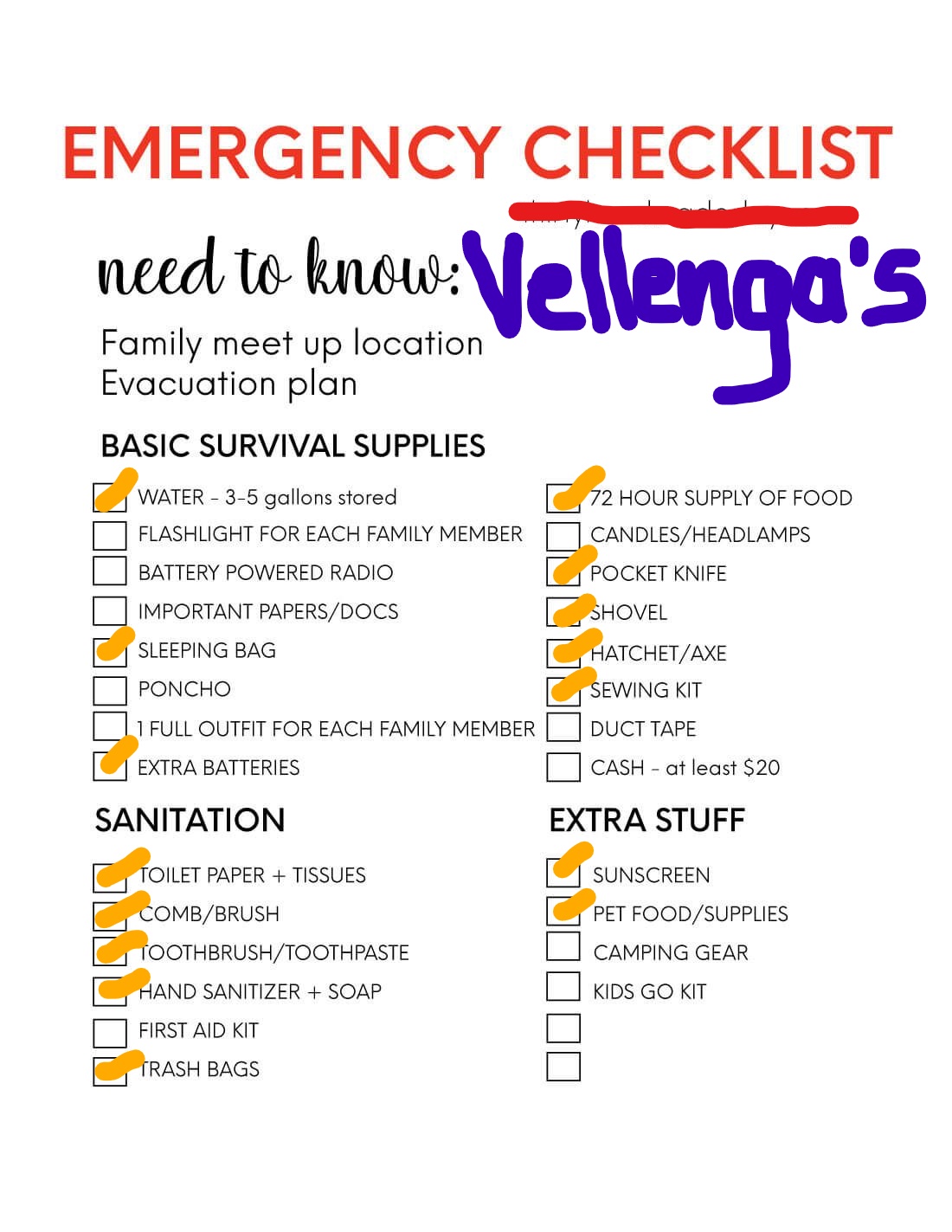A Letter from Jhan Dotel-Vellenga and Ian Vellenga, serving in Nicaragua
Summer2021
Write to Ian Vellenga
Write to Jhanderys Dotel-Vellenga
Individuals: Give online to E200391 for Ian and Jhanderys Dotel-Vellenga’s sending and support
Congregations: Give to D507593 for Ian and Jhanderys Dotel-Vellenga’s sending and support
Churches are asked to send donations through your congregation’s normal receiving site (this is usually your presbytery).
Subscribe to our co-worker letters
Dear friends,
I was watching the news about the U.S. withdrawal from Afghanistan, and what I initially saw was complete and utter chaos. There was a sense that not many people knew what was going on. It was also clear that the level of confusion and bedlam wasn’t anticipated, at least to the extent it was happening. It made me doubt that there was any planning involved prior to pulling out our military. I was reminded of one of the quotes that stuck with me during my time in the Marine Corps, a quote that is paraphrased from Dwight Eisenhower while he was the commander of Allied forces in Europe during WWII, “Plans are useless, but planning is essential.”
Eisenhower, of course, was speaking specifically about war and combat. There are so many unknowns, so many realities that we fail to conceive of, that even the best thought-out plans are rendered ineffective. Vehicles could break down. A storm could slow troop movement. Diseases could spread uncontrollably among soldiers, making them combat ineffective.
But even in ordinary life among ordinary folks, there is an element of truth to this phrase. We have all been affected by COVID in some capacity, whether it’s avoiding indoor gatherings, being unable to travel, or wearing masks while grocery shopping. Jhan and I were hoping to visit our supporting churches, one of our joys as mission co-workers. We spent months sending emails to set up dates, planning where we would stay, how we would get from point A to point B, etc. But then the COVID pandemic worsened, and all of our plans suddenly became obsolete. We returned earlier than expected to the U.S., and we have been staying with my family in North Carolina ever since.
Even though our plans fell through, our extensive planning helped prepare us for an unforeseeable future. The planning helped us realize the purpose behind the intended travel and visits to our supporting churches. One of the main reasons to travel and visit churches is so that different congregations can put faces to the names of the people they are supporting and so that we can also get to know the members of different congregations. Another reason is to share our message about our mission work with congregations and offer a status report about how they are impacting the lives of Nicaraguans. Although everyone agrees that face-to-face encounters are more ideal, we can still fulfill the purpose of our visits via the wonders of technology. Since we’ve been in the U.S., we’ve had countless Zoom meetings with our different partners. We’ve recorded and edited messages to send to congregations about our work in Nicaragua. We’ve stayed in constant contact with the Council of Protestant Churches of Nicaragua (CEPAD) in Nicaragua. We have begun sharing tangible examples of CEPAD’s work with Presbyterian partners through “virtual tours and conferences.”Plans are a way to accomplish specific goals or meet certain requirements. Plans answer the question, “how are we going to do this?” Plans are also static. A specific set of circumstances is needed for plans to work like they are supposed to work. Any unforeseen event, unthought-of condition, or unknown piece of information can make even the best plan useless.
On the other hand, planning is the imaginative process, the creative procedure in which we set goals and come up with ways to achieve those goals. Good planning helps identify variables that may show up, raising awareness and giving a better perspective. However, rarely can anyone predict or foresee every possible contingency. But the best thing about planning is that it helps identify what is really important. As in Jhan’s and my case, we planned to visit churches. The most important thing about visiting churches is meeting you and sharing about the ways in which we and our partners in Nicaragua spread God’s message of love, justice and solidarity. Happily, this can be done face to face or virtually. Is meeting in person be better? Absolutely! 100%! But given the present circumstances, it’s not yet ideal.
We look forward to making travel plans again to share physical spaces with all of you and the communities we work with in Nicaragua. In the meantime, we will continue to do some planning, understanding that many things are not under our control and situations can easily change. And we hope that our message of God’s love will, in one way or another, reach you.
Ian and Jhan
Please read the following letter from Sara P. Lisherness, the interim director of World Mission:
Dear partners in God’s mission,
I don’t know about you, but daily my heart grows heavier. News about the pandemic, wars, wildfires, gun violence, racism, earthquakes and hurricanes cloud my vision. It’s hard to see hope; our world is in a fog. Yet we trust that God’s light and love transcend the brokenness of this time.
God is at work transforming the world, and you, through your prayers, partnership and encouragement, are helping us share this good news. Thank you for your faithful and gracious support of our mission personnel.
How can we see through the fog? What will the church be after the pandemic? Could it be that God is doing “a new thing” and is inviting us to perceive it? Through all the uncertainty we know that God’s steadfast love and care for all creation will prevail and that God’s Spirit is at work in each of us.
We all have an integral part to play in fulfilling God’s mission. As we seek to grow together in faithfulness there are three important steps I invite you to take in supporting our shared commitments to God’s mission:
Give – Consider making a year-end financial contribution for the sending and support of our mission personnel. Your support helps mission personnel accompany global partners as together they share the light of God’s love and justice around the world. Invite your session to include support for mission personnel in its annual budget planning.
Act – Visit The Mission Yearbook for Prayer and Study to delve deeper into the work God is doing through the PC(USA) and its partners in ministry around the globe: pcusa.org/missionyearbook.
Pray – Include our mission personnel, our global partners, and our common commitments to share God’s grace, love, mercy and justice in your daily prayers.
Thank you for your faithfulness to God’s mission through the Presbyterian Church. It is my prayer that you will continue to support this work with your prayers, partnership, and financial gifts in the coming year. We hope you will join us and our partners in shining a beacon of hope throughout the world.
In the light of hope,

Sara P. Lisherness, Interim Director
World Mission
Presbyterian Mission Agency
Presbyterian Church (U.S.A.)
To give please visit https://bit.ly/PCUSAmission
You are the light of the world. A city built on a hill cannot be hid. No one after lighting a lamp puts it under the bushel basket, but on the lampstand, and it gives light to all in the house. In the same way, let your light shine before others, so that they may see your good works and give glory to your Father in heaven. Matthew 5:14-16
![]() You may freely reuse and distribute this article in its entirety for non-commercial purposes in any medium. Please include author attribution, photography credits, and a link to the original article. This work is licensed under a Creative Commons Attribution-NonCommercial-NoDeratives 4.0 International License.
You may freely reuse and distribute this article in its entirety for non-commercial purposes in any medium. Please include author attribution, photography credits, and a link to the original article. This work is licensed under a Creative Commons Attribution-NonCommercial-NoDeratives 4.0 International License.
